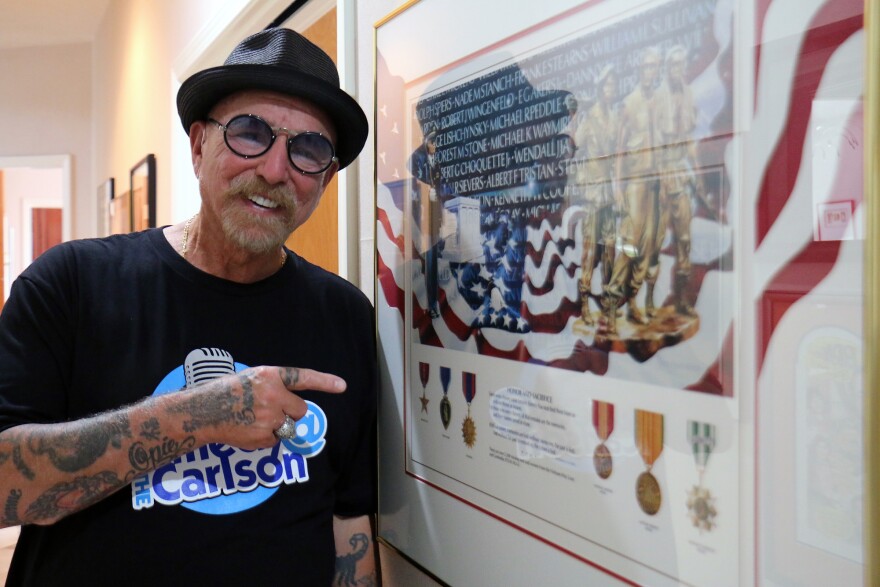Many years before he became known as Brother Wease to local radio fans, Alan Levin made a big decision.
It was 1966. He was 19. One of his best friends was fighting in the Vietnam War.
So he decided to enlist in the U.S. Army.
“It's just stupid kid crap. I was 19, so I go, ‘Joe's there, I gotta go.’ ”
And because that friend was a paratrooper, Levin went through that training, too.
He said when he started the first of his three tours in Vietnam, he didn’t even know why the U.S. was involved in the war.
“I had no idea, politically speaking, anything,” Levin said. “You know, don’t forget, all those years ago, we didn't have 24/7 news, we had nothing. We just know that America was in a war in this far-off land. … That was in a time of draft, which today's kids won't ever understand, and like a schmuck, I joined.”
But Levin quickly learned many hard lessons.
“The whole war, it's really strange because it's a terrible thing. The whole war changed my life completely,” he said.
He talked about audio he taped while in Vietnam with a recorder that somebody back home had sent him. Levin and his fellow soldiers made a bunch of tapes and shipped them back home. Decades later, the tapes were given back to Levin. The contents — which he now plays occasionally on his radio show — are disturbing, he said.
“There's stuff about mistreatment of native people,” he said. “There’s stuff about, maybe, I can't remember particularly, we had an incident where one of our officers was in danger from our own guys. These are just true stories. I have been on a conservative talk show in Rochester and told a whole bunch of honest stories. And when I got off the air, the phone calls that came in were like, I was the devil. Some people just cannot understand honesty and truth.
“You know, I'll go to my deathbed knowing what I know.”

Today, Levin is well-known for his views against war. At one point, he was a member of Vietnam Veterans against the War. But he enthusiastically supports the U.S. armed forces.
“I'm anti-war, but that doesn’t mean we don’t need a military to keep America where it is. I just don’t understand getting into other people's civil wars that won't affect this country.
“I tried to get my sons, both of them, to go in the military because it's such a fabulous opportunity. It's an unbelievable opportunity. You could have a career. You could learn a million things. But it's a job. There's eight men that type, cook, clean, drive a truck, are in the dispensary, for every one combat veteran.”
And with that, Levin wishes a change could be made.
“My plea to the veterans outreach and to the Veterans Administration is to start calling people combat veterans. … There’s a lot of guys coming back mentally injured, physically injured, all over the place. You know, that deserve everything that we give 'em. Including health care for life and all of those things. But I think we have to be sure of who we take care of. Let’s take care of the right people. Not people who went into service, crapped out in eight months because they were getting high, and now they're veterans. Those people exist.”
Levin said he “bleeds” for his “boys that were in combat.”
“I have many dead brothers,” he said.
He recalled visiting the Vietnam memorial at Highland Park with a couple of high school buddies; he said it hurt to see the names of those who died in the war.
“With our buddies on there, 19 years old, kids we went to high school with. We all cried real tears that I feel like crying now. Because they died in this thing. How many people care? And yet people want to rah-rah some crap halfway around the world in a country nobody knows about or cares about that had no effect, except for some political people talk about the domino bullcrap and everything.
“Well, we lost. What happened? We're still a free country, still great. Well, maybe I mourn a little harder for, you know, the people I know that had to give up their teenage lives for that crap.”


